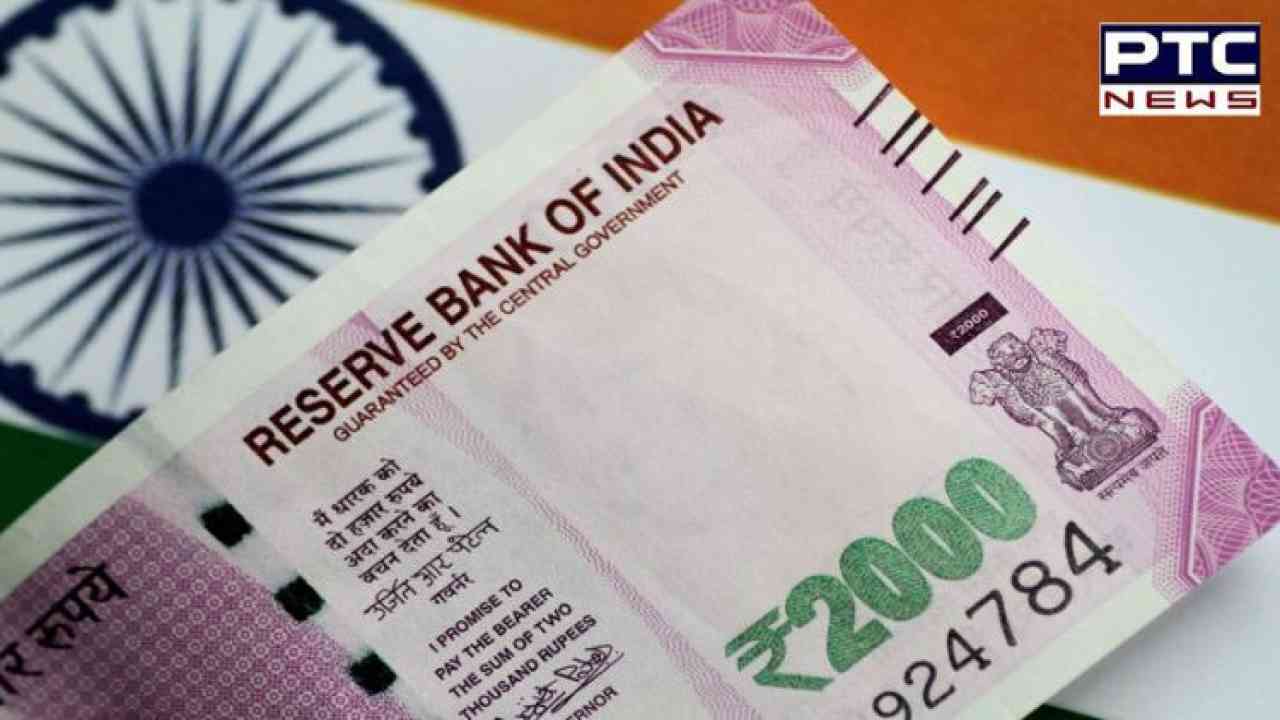

RBI withdraws Rs 2,000 notes: Know what next, how does it impact you & more
PTC News Desk: The Reserve Bank of India (RBI) has withdrawn Rs 2,000 currency notes from circulation.
RBI has instructed banks not to issue Rs 2,000 notes with immediate effect. However, citizens need not worry as the withdrawal will be carried out in a “time-bound” and systematic manner, RBI assured.
The central bank stated in a press release that the Rs 2,000 notes now in circulation will remain legal tender. As a result, users can use them for transactions and receive them as payment for the time being.
The RBI, on the other hand, has "encouraged" the people to deposit and/or exchange these banknotes by September 30, 2023.
Simply said, the withdrawal of Rs 2,000 banknotes would have no immediate impact on citizens because they will have adequate time to exchange them.
Reason behind the key move
The majority of the Rs 2,000 denomination notes were issued before March 2017 and have reached the end of their 4-5 year expected lifespan. Moreover, as per the observations, the Rs 2000 notes are not commonly used for transactions.
Furthermore, the stock of banknotes in other denominations remains sufficient to meet the public's cash needs.
So, in accordance with the Reserve Bank of India's "Clean Note Policy," it has been decided to withdraw the Rs 2000 denomination banknotes from circulation.
Printing of Rs 2000 notes was stopped 5 years ago
The Rs 2000 denomination banknote was introduced in November 2016 under Section 24(1) of the RBI Act, 1934, primarily to meet the economy's currency requirements in a timely manner following the withdrawal of the legal tender status of all Rs 500 and Rs 1,000 banknotes in circulation at the time.
With the goal being achieved and the availability of banknotes in other denominations in sufficient quantities, the printing of Rs 2,000 banknotes was discontinued in 2018-19.
The "Clean Note Policy"
Also Read | Reserve Bank of India to withdraw Rs 2,000 currency notes from circulation; know details
The policy has been adopted to ensure availability of good quality banknotes to the members of the public.
How to exchange Rs 2,000 notes?
You have the option to deposit Rs 2,000 banknotes into your bank accounts or exchange them for currency notes of other denominations at any bank branch.
RBI said that “Deposit into bank accounts can be made in the usual manner, that is, without restrictions and subject to extant instructions and other applicable statutory provisions."
“In order to ensure operational convenience and to avoid disruption of regular activities of bank branches, exchange of Rs 2,000 banknotes into banknotes of other denominations can be made up to a limit of Rs 20,000/- at a time at any bank starting from May 23, 2023,” it added.
Any upper limit on deposits of Rs 2,000 notes?
There is no set restriction that is applied, but there is an operating limit of Rs 20,000 on the amount of Rs 2,000 banknotes that can be exchanged at once.
"Deposit into bank accounts can be made without restrictions subject to compliance with extant Know Your Customer (KYC) norms and other applicable statutory/regulatory requirements," RBI says.
Moreover, customers can go to any bank branch to exchange the Rs 2000 notes. "A non-account holder also can exchange Rs 2,000 banknotes up to a limit of Rs 20,000 at a time at any bank branch."
No fee for exchange facility
Special arrangements for senior citizens, persons with disabilities, etc
Banks have been told to make arrangements to reduce inconvenience to senior citizens, persons with disabilities, etc, seeking to exchange/deposit Rs 2,000 banknotes.
If a bank refuses to exchange/accept deposit of Rs 2,000 note...
In the case of poor service, the unsatisfied customer should first contact the relevant bank for redress of the grievance. The complainant may file a complaint with the Reserve Bank — Integrated Ombudsman Scheme (RB-IOS), 2021, on the RBI Complaint Management System portal if the bank does not respond within 30 days of the complaint being filed or if the complainant is not satisfied with the response or resolution.
Also Read | Massive surge in traffic: RBI website crashes after Rs 2000 note withdrawal announcement
- PTC NEWS
